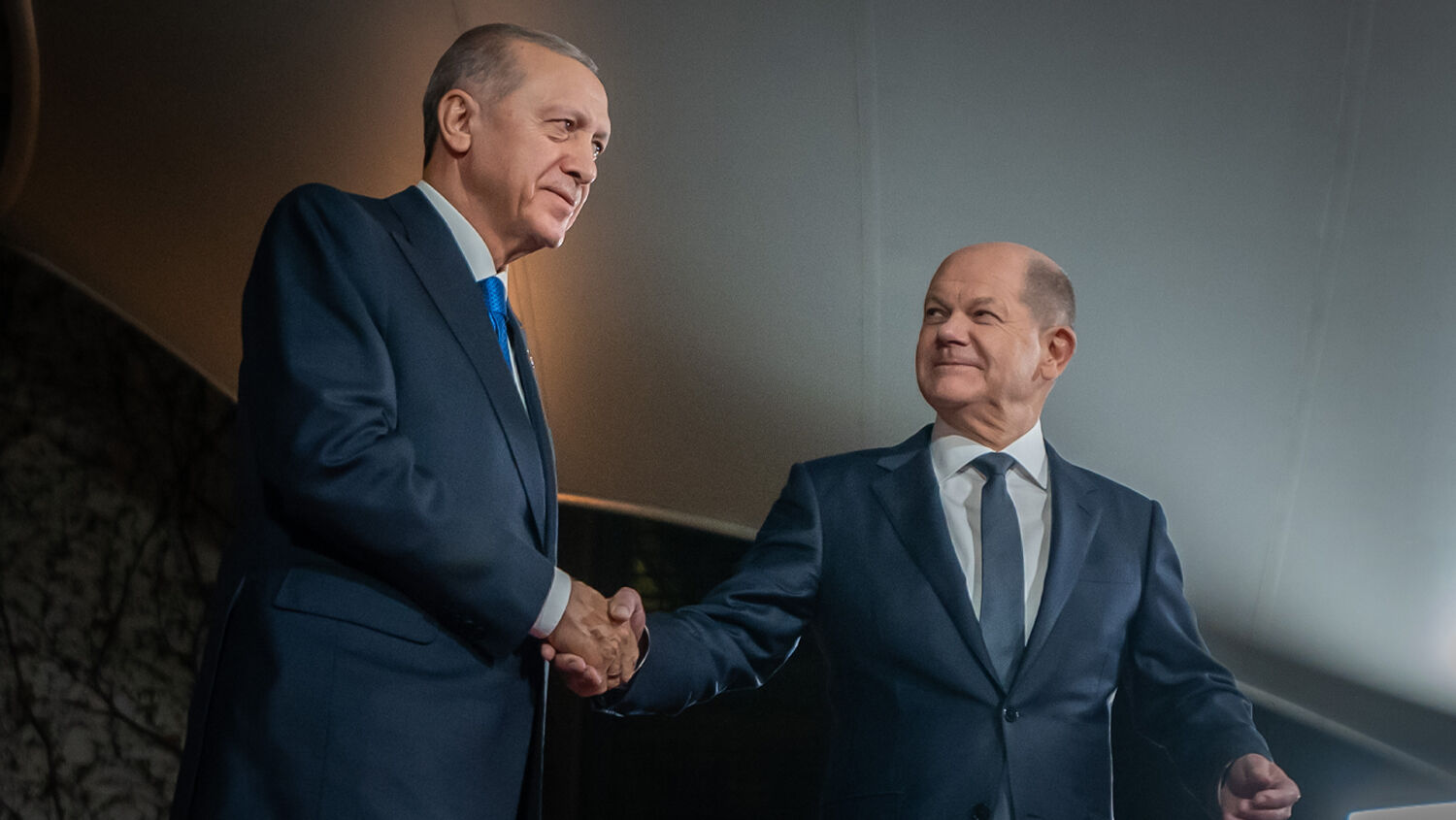
Did German Diplomatic Power Contain the Middle East War?
During Turkish President Recep Tayyip Erdoğan’s November 17 visit to Germany, German Chancellor Olaf Scholz said Turkey and Germany share fears of a wider “conflagration” in the Middle East. Erdoğan said: “If we can establish a humanitarian ceasefire together with Germany, we will have the opportunity to save the region from this ring of fire.” Almost every meeting between Germany and Turkey or Arab countries has used similar language.
The recent “humanitarian pause” may have been a compromise between Germany, Israel and Middle Eastern countries.
Germany has been negotiating a deal with Middle Eastern countries to ensure the conflict would not escalate; there are indications they have been successful. In a recent Key of David program, Trumpet editor in chief Gerald Flurry made this exact argument, stating:
The number one terrorist proxy that Iran has is Hezbollah in Lebanon. Now, Gen. Hasson Nasrallah said recently that if Israel attacked Gaza, there would be an all-out attack from Hezbollah, over all of Israel. [O]n November 3, he was going to make a speech, and everybody expected, well, he’d be talking about this war that he was going to declare on Israel, but he didn’t bring that subject up. He didn’t state it specifically at all. And the question and puzzlement to a lot of people is, Why not? Why didn’t he go ahead and say what he said before?
Mr. Flurry proposed that Germany has worked with Arab nations to prevent an escalation of the war. There is evidence for that.
After Hamas’s attack on Israel, Scholz said on October 12: “Hezbollah must not intervene in the fighting.” This is an ambitious goal, but the German chancellor, defense minister and foreign minister have been busy in the Middle East to ensure just that. “In Hamas’s terror war against Israel, it is the German government that is one of the most important negotiators behind the scenes,” Bild concluded on October 20.
King Abdullah ii of Jordan said after an October 17 meeting with Scholz in Berlin: “The whole region is at the brink of falling into the abyss that this new cycle of death and destruction is pushing us towards. The threat of this war expanding is real.”
Following that meeting, Scholz said: “I expressly warn Hezbollah and Iran not to intervene in the conflict.”
Coming back from his trip to the Middle East on October 19, he said:
I also used the trip and my talks—with the king of Jordan, the Egyptian and Turkish presidents and the emir of Qatar, among others—to advocate that this conflict should not escalate further regionally. We all agree that such a conflagration would be devastating for the entire region.
After meeting with Arab leaders in Egypt on October 21, German Foreign Minister Annalena Baerbock said: “We all know that our views on the conflict differ. However, we are all united by the fact that a conflagration must be prevented.”
Germany’s negotiating power should not be underestimated.
Unlike most Arab countries, Germany also has good relations with Israel. Scholz noted: “Germany is held in high esteem in Israel. We see ourselves as a country that feels very responsible for ensuring that Israel’s security remains guaranteed. That is understood in Israel. And yes, Germany is also very well respected by many other governments here. If that’s the case, then we should take advantage of that.”
On November 12, Scholz said calls for an immediate ceasefire in the Middle East equate to calls “that Israel should allow Hamas to recover and obtain new missiles.” Instead, he suggested “humanitarian pauses,” which Israel and its Arab neighbors agreed to.
Germany’s growing influence in the Middle East is something the Trumpet has long expected. In his booklet The King of the South, Mr. Flurry explains that Germany will lead an alliance that includes Turkey and various moderate Arab nations, as prophesied in Psalm 83. In Chapter 4, “Another, More Mysterious Alliance,” he writes:
The prophecy we will study lists several Islamic nations that will band together with “the king of the north,” German-led Europe! This alliance has never happened in history. All the Bible commentaries will tell you that. But these nations are coming together now. …
If you watch Germany closely, you can see that it is already positioning itself for its “whirlwind” attack on Iran. And some of these preparations are laying the groundwork for this future alliance with Arab states.
However, this prophecy reveals a crucial truth: This alliance is primarily and ultimately concerned not with countering Iran ….
By posing as a bulwark against Iran and its terrorist allies, Germany is rallying various other nations to its side. But if you observe these events closely, you will see these nations hate one nation more than they hate Iran. This alone tells you Germany’s alliance with these nations need to be watched in light of Bible prophecy. Study “Another, More Mysterious Alliance” to understand.
